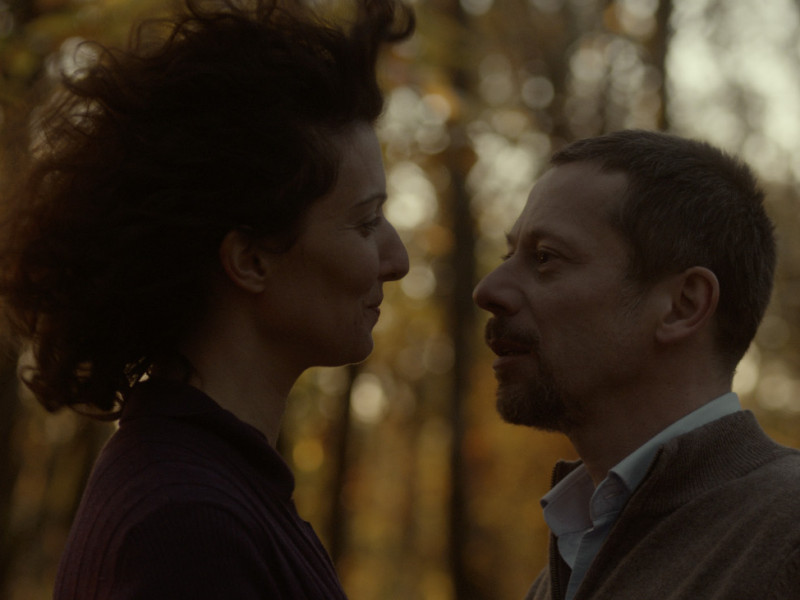From the start of The Blue Room, with its shots of wrinkled sheets in a recently vacated hotel room, it’s evident that Mathieu Amalric’s film will focus not strictly on the illicit affair between Julien (Amalric) and Esther (Stéphanie Cléau) but on the aftereffects of unfaithfulness and center not on seduction but on the consequences of seducing and being seduced.
In such a scenario, the trope of the mad mistress casts a long shadow — think Fatal Attraction — as does that of the jealous, vengeful partner, who isn’t hard to find either in today’s theaters. Lying in bed, Esther repeatedly asks Julien variations on the question: “Could you spend your whole life with me?” So when she later begins sending him cryptic letters about their future together, you wonder whether a dead rabbit isn’t too far in the future.
Esther’s obsessive qualities are really only hinted at, though, as is the jealousy of Julien’s wife, Delphine (Léa Drucker), which we suspect, in retrospect, only because another character asks Julien about it. Both are expectations, assumptions that Amalric and Cléau, who together adapted the script from Georges Simenon’s novel, coyly dance around but never outright confirm or dismiss. Instead, they allow the audience to slowly realize just how much the events in The Blue Room are filtered through Julien’s experience, and then to understand that his perspective might be crucially flawed.
Julien is presented emphatically as a small man — looking plain and diminutive standing next to the tall and elegant Esther. And with every turn in the plot, every new threat that his secret will be exposed, he shrinks more, his face an increasingly pitiful mix of helplessness and anguish. He’s not an unreliable narrator, but because his demeanor is so pathetic, so seemingly harmless, our focus shifts to the events around him and to the growing sense of some unfortunate event certain to befall him.

9(MDAxOTAwOTE4MDEyMTkxMDAzNjczZDljZA004))

